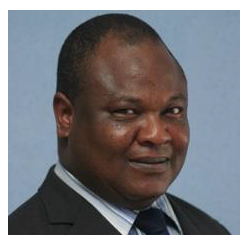 |
Annual Sugar Report for Nigeria 2013 |
Report Highlights: Nigeria’s sugar refining capacity, estimated at 2.1 million tons, exceeds the country’s current total demand of 1.45 million tons. The country’s sugar refineries depend almost exclusively on brown sugar from Brazil at five percent duty. This situation has assisted with promoting investment in sugar refining rather than in production so far. However, the Government of Nigeria (GON) introduced a new sugar tariff regime at the start of the new year (January) and raw sugar imports began to attract a 10 percent import duty, and a 50 percent levy, effective January 2013. This newer regime is meant to stimulate local sugar production. Even though total privatization of Nigeria’s sugar estates was accomplished, the country’s sugar production continues to lag far behind consumption. However, industry sources indicate that contrary to the GON expectations, it will take long - term and huge investment in public infrastructure and human/material resources for the country to catch up with the current and fast growing demand.
Executive Summary:
According to the National Sugar Development Council (NSDC), Nigeria has a land potential of over 500,000 hectares of suitable cane fields that can produce over 5 million metric tons of sugarcane that when processed, can yield about 3 million metric tons of sugar. However, the sector has been neglected and depends almost totally on refining imported raw brown sugar from Brazil worth over $500 million.
In order to improve Nigeria’s sugar subsector, the Nigerian government (GON) decided to privatize all its sugar estates. The NSDC was set up in 1993 and its first task was to arrange the privatization of the country’s nationalized sugar companies. The rehabilitation of these estates has been very slow due largely to the huge capital required and a lack of electricity/power to run the sugar mills. The privatization process was completed in 2008 and the NSDC next aims to implement an out -grower program that will eventually run in all 14 sugar producing locations in the country. To date the program has only been launched at the Savannah Sugar Company Limited, currently the only active sugar producer in Nigeria, and also at Josepdam Sugar Company. The rehabilitation of the other sugar estates remains stalled at various stages of development.
Nigeria’s sugar requirements are mainly met through imports of raw sugar that is refined locally. Dangote Sugar (installed refinery capacity of 1.44 million tons) and the BUA Group (with a capacity of 720,000 metric tons) are the major companies refining sugar in Nigeria. The Flour Mills of Nigeria and other new investors are entering and/or expanding capacities. In total, investments in annual sugar refining have reached 2.3 million tons, exceeding national consumption needs estimated at 1.45 million tons per year.
Despite this overcapacity, more investors have established additional sugar refineries, aiming at future export markets. The increasing investments were spurred by Nigeria’s beneficial tariffs on raw sugar (subject to a duty of just 5% and exempted from the development levy). About 98 percent of all imports come in the form of raw sugar and is refined locally while the remainder of imports is refined sugar. More than 90 percent of raw sugar was imported from Brazil.
Effective January 1, 2013, the GON revised the sugar tariff structure to revitalize activities in the sugar estates, boost domestic raw sugar production for the sugar refine
ries and create jobs. New tariffs for raw and refined sugar were announced, as well as for sugar related production equipment and machinery. The GON also proposed:
·A zero per cent import duty on machinery and spare parts destined for local sugar manufacturing industries;
·A five year tax holiday for investors in the sugar value chain;
·A 10 percent import duty and 50 percent levy on imported raw sugar;
·A 20 percent duty and 60 percent levy for imported refined sugar.
These measures are gradually shifting investment patterns towards backward integration in the sugar value chain. The Executive Secretary of NSDC, Dr. Latif Busari, recently indicated that Nigeria is targeting production of 1.7 million tons of by 2018. He said production in excess of national consumption will go to the export market. He further indicated that the GON developed Nigeria Sugar Master Plan (NSMP) would require massive private sector investment of more than $3.1 billion over the next 10 years to cover Nigeria’s 28 sugar projects, which include estates, infrastructure, etc. At this initial stage, an
import quota for raw sugar has been adopted and the ability of the local sugar refineries to import raw sugar is now strictly tied to their ability to produce raw sugar locally. This part of the NSMP awaits presidential approval on recommendation from the Minister of Industries, Trade & Investment.
However, Post is not expecting any major changes in current domestic sugar supply structure in 2013/2014 based on the continuing state of Nigeria’s poor infrastructure
which is needed to stimulate local sugarcane production as fast as it is being proposed.
Exchange Rate: $1 = 160 Naira
Commodities:
Sugar, Centrifugal
Production:
Nigeria’s domestic sugar production in MY2012/2013 remains unchanged at 65,000 tons (raw value), the same figure as MY2011/2012. Dangote - owned Savannah Sugar has completed the first phase of its rehabilitation program, with about 6,700 hectares of newly planted sugar cane fields. Dangote Sugar Company is also partnering with Nigeria’s Taraba State government to establish a sugar processing company in Lau Local Government Area of that state. Josepdam Sugar Company has embarked on an aggressive nursery establishment to produce enough sugar cane seeds for field expansion. Currently it has 1,250 hectares of seed cane but the available raw material is not adequate to start operations. Other sugar estates are in varying stages of rehabilitation. For example, Golden Sugar Company (Sunti), owned by Flour Mills of Nigeria (FMN), has developed 2,000 hectares of land and planted over 1,000 hectares of sugarcane (using a center - pivot irrigation system) but has not reached a minimal level necessary for successful milling. Savannah Sugar reported a decrease in sugar cane yield from 66 tons per hectare in 2010/2011 to 60 tons in 2011/2012. The average yield of refined sugar from a ton of cane is estimated at approximately 0.961 or 9 percent. With privatization completed, the NSDC has shifted its focus to support the development of the industry, including research and development, promotion of mini plants, support for an out - grower program, and establishing a price support mechanism to ensure that farmers receive a fair price from the newly privatized estates. The NSDC aims to implement an out - grower program that will eventually run in all 14 sugar producing locations in Nigeria. The NSDC, in collaboration with the private operations, aims to assist farmers in the acquisition of fertilizers, pesticides and improved seed cane with the help of the Central Bank of Nigeria (CBN) and local commercial banks. The out - grower program will deliver inputs and credits to cooperatives at a low interest rate of 7 percent compared to up to 28 percent or at more traditional lending rates.
On April 2, 2012, the Minister of Trade and Investment, Dr. Olusegun Aganga, announced that that the long waited Nigerian Sugar Master Plan (NSMP) had been finalized. According to Minister Aganga, the master plan will ensure an increased annual sugar production of 1.797 million tons of sugar...
Enjoy this article? Feel free to share your comment, idea or opinion in the comment section
Related Articles

|
Nigeria Confronts Post-Crisis Global Economic RealitiesNigeria has long been trying to learn how best to manage boom-bust cycles in global commodity prices, adopting an oil-price benchmark for annual budgets while saving revenues above the benchmark in an excess crude account in the half decade before the 2008/2009 global crisis. The crisis and its afte [Read more]
|
Posted: 13 years ago |

|
What is the Bank Lending Channel of Monetary Policy Transmission?The mechanism by which monetary policy is transmitted to the real economy remains a central topic in macroeconomics. The bank lending channel represents the credit view of this mechanism. According to this view, monetary policy works by affecting bank assets (loans) as well as banks’ liabiliti [Read more]
|
Posted: 14 years ago |

|
Understanding Transformational LeadershipIn our day-to-day interactions with managers and leaders in the workplace, there is one thing we often remember - the impact they had on our lives or how they made us feel even when we no longer work with them. The words and/or actions of a leader could be the reason why an individual is motivated t [Read more]
|
Posted: 4 years ago |


